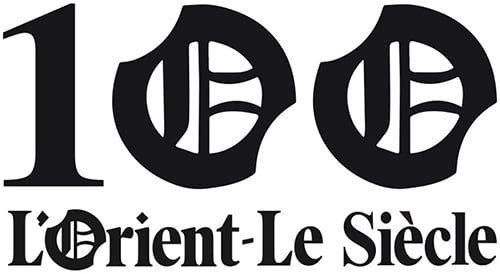Stella Kyomuhangi is a mother of eight school age going children. She lives with her husband Bedius Aruho in Nyanja Parish, Bukiro Sub-county in Mbarara District, Uganda.
The area, like many other places in the district, doesn't have a lot of bushes and shrubs. This poses a challenge of getting fire wood, the only source of energy for cooking in homes.
Realizing that lack of safe water is a serious challenge in the community, Agency for Cooperation and Research in Development (ACORD) started a project to build tanks for harvesting rain water. The sources of water were streams, swamp and communal wells.
Whereas the water tanks lessened the challenge of lack of water for household use, it did not end the unhealthy culture of drinking unboiled water. People were still drinking unclean water drawn from the tanks as they did with water from streams and wells. According to the residents, this was due to lack of firewood to boil the water. As a result, children would often suffer from diarrhea and other diseases.
"It is not that we did not know the dangers of drinking unboiled water but the challenge is lack of firewood," says Komuhangi. ACORD, therefore, had to find a way to sanitize the water without having to first boil it. That is how the WADI water disinfectant device came to be in the community in September 2015.
A creation of Austrian company, Helioz, WADI is an Ultraviolet (UV) light measurement device. The equipment is the size and shape of small pocket radio or tape voice recorder. The UV-radiation of the sun inactivates harmful pathogens in the water. Over time, the sun's UV-radiation will make the contaminated water safe to drink. A near death experience from cholera while in Venezuela set WADI founder Martin Wesian on the path to finding an easy-to-use and inexpensive household water treatment solution for the majority poor who have no access to this basic human utility. "Because of cholera, I lost 15kgs in 10 days and I saw people die around me!" Wesian says. Even with all the technological advancement of our times, the majority of the world's population still die from lack of access to safe water one of the most basic of human needs. Helioz is currently focusing on six countries including Uganda, Ethiopia, Kenya, India, Nepal and Pakistan to bring safe water to communities through nongovernmental organizations like ACORD.
How Wadi works
The water that has to be disinfected is put in PET (Polyethylene Telephala) bottle - the common colorless plastics used to package processed water. The bottle is then placed on a rack or table and exposed to sunlight. WADI device is then placed beside the bottles (they can be as many as 20 or more). Precisely, WADI device helps to tell whether the target water has been disinfected of bacteria by sunlight. The device has a small screen showing the power bars that keep building (like a phone battery charging). Once four bars have built, it means that water in the bottles on the rack has been fully disinfected of bacteria by sunlight. The water to be treated should be clear and without chemical contamination such as lead and manganese. UV kills only biological contamination such as bacteria, virus and protozoa.
Users also keep observing the small in-built cartoon on the screen which they have nicknamed kakyebezi (checker). When a smiley face appears, it means the water has been disinfected and is ready for drinking. It takes between three to six hours for water to get disinfected. UV disinfects water from boreholes and springs (but only those in villages), gravity flow scheme and rain water collected in a tank or container. This is because this water is largely free of chemical contamination. The disinfected water has be kept in clean containers and taken within two days.
"For the four months I have been using WADI, my children no longer suffer from illnesses. I make sure I treat at least seven liters of water every day for the whole family. The children take some to drink at school," says Komuhangi. She finds no difficulty in using the device for they were first trained by ACORD on how to use and keep it.
Byamugisha says: "Children now have time to read. They had been spending a lot of time looking for firewood to boil water. Besides, this water tastes good unlike the one we boil which sometimes has bad odor."
"I treat five liters of water daily for us to drink. The neighbors who don't have WADI bring their water here for disinfecting. Lack of firewood is a big problem here, it has been difficult for us to boil water. We have been taking it the way you get it from the tank," says Adrine Nuwagaba, a resident.
Dunstan Ddamulira, the programs manager ACORD Mbarara, says they piloted the use of UV light to treat water in Kisoro District. They, however, used bottles to expose water to light for many hours but without a mechanism of ascertaining whether it has been disinfected or not.
The WADI device costs Shs52,000 (15USD;13.3 euros). It is, however, not on the local market. It can only be imported from Austria. It uses solar energy and therefore does not need any other power source. The device is light weight and resistant to water. It has a guarantee of two years and is environment friendly.
About 500 homesteads are using UV-WADI device innovation. Three hundred are in the sub-counties of Biharwe, Bukiro, Mwizi, Kashare, Bubare, Rwanyamhembe and Rubaya in Mbarara District. The other 200 are in Rwamwanja Refugee Settlement Camp in Kamwengye District.
ACORD will be starting a two-year phase of the innovation targeting to reach 74 schools and 500 households in the same areas starting June this year.
ACORD plans to popularize the innovation and involve businessmen in importing devices into the country so that they are easily accessed by individuals and institutions.

commentaires (0)
Commenter